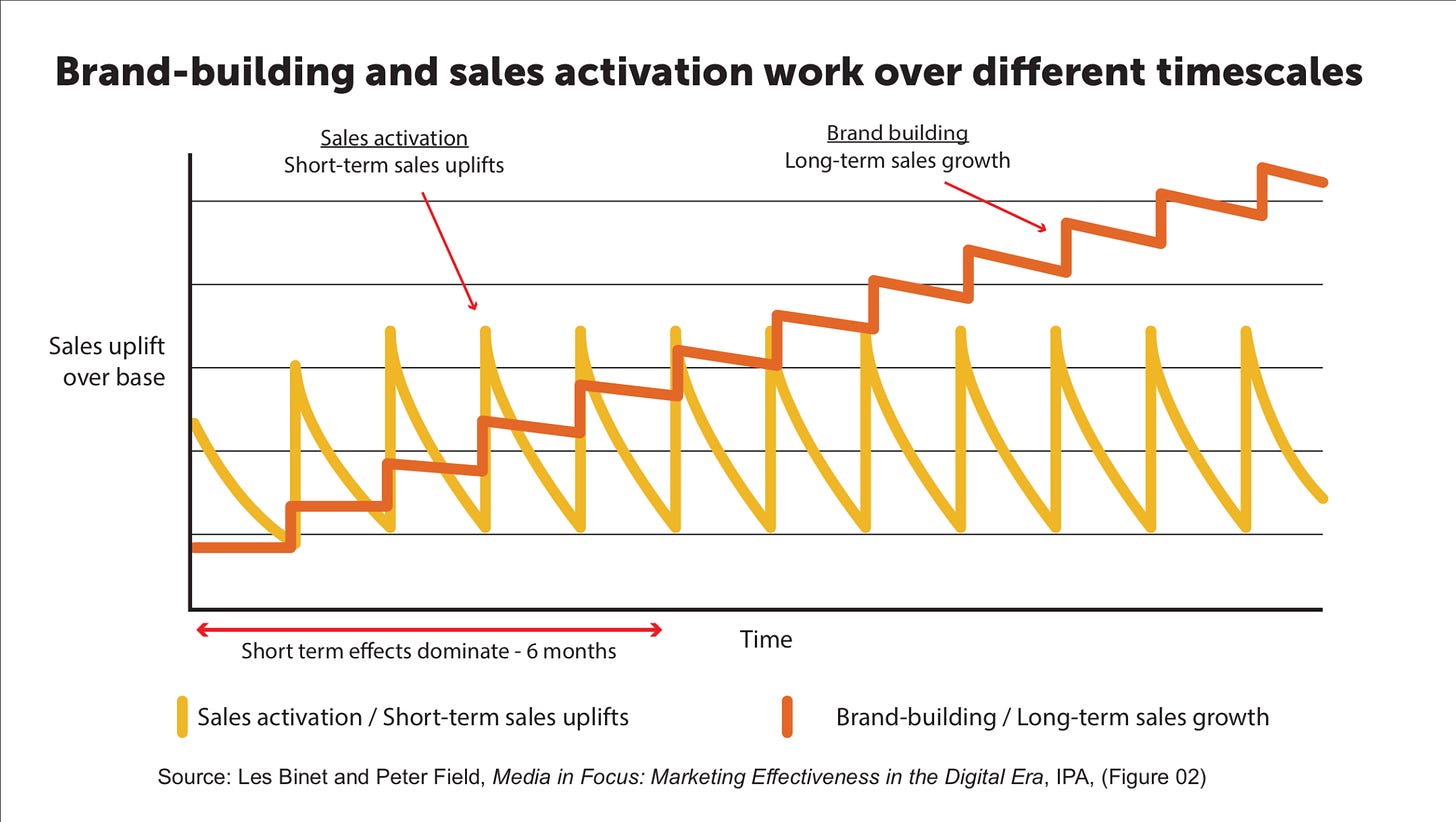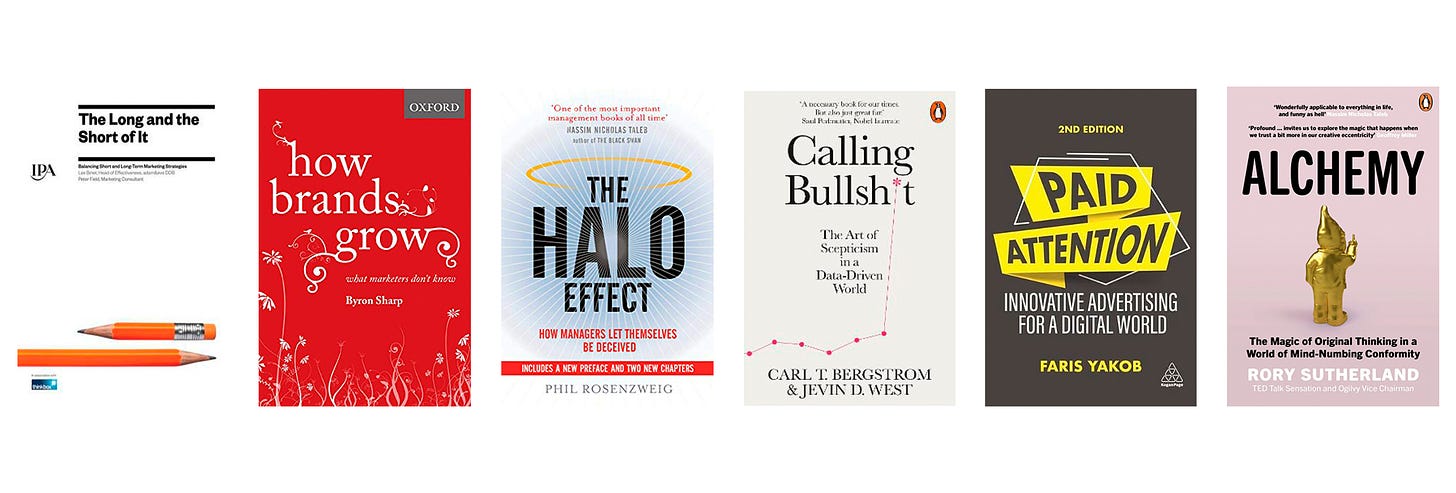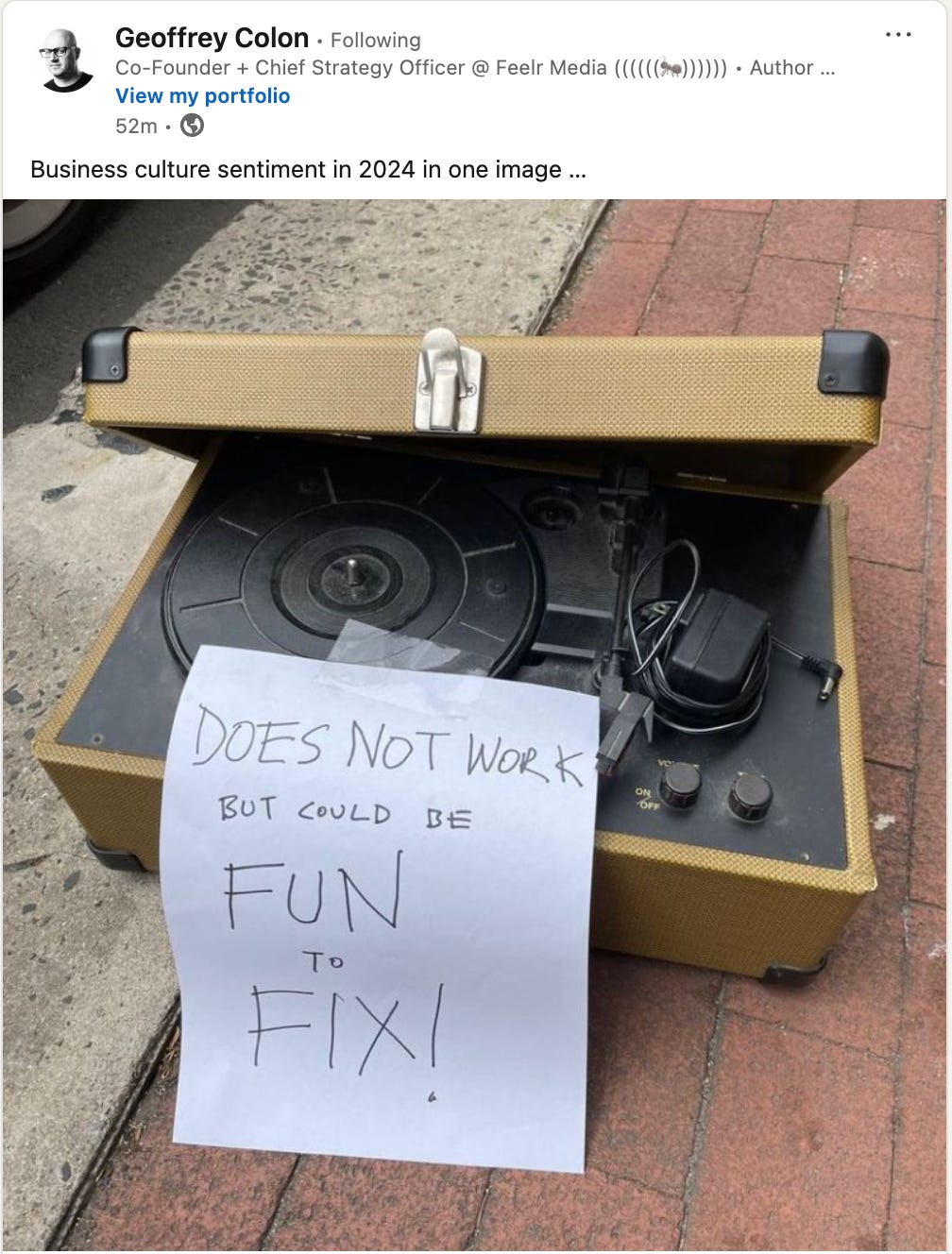Intro
Hello! I’ve given it a bit of a spring clean and am restarting this Substack - and re-purposing a few things - as I find some time and a place for all things marketing and culture. This is somewhat motivated by working on a project to develop a course/materials to teach Content Marketing and Strategy.
I’d love to attempt to build this little corner of the internet into a place where we can discuss the good, bad and the ugly of work, marketing, strategy, culture and whatever else. So please feel free to jump in with your thoughts and ideas.
So, the question I get asked most frequently, especially by people working in marketing, is what books should I read to learn marketing? How would you answer it? And if don’t work in marketing - what books would you recommend in your field?
I’ll give you mine at the end.
Binet & Field, Sharp, Rosenzweig, Bergstrom & West, de Wit etc.
How many of these names are familiar? How many have you read? This isn’t a trap, I’m really interested to know.
I’m an ‘accidental marketer’ - I come from and art & design background - and I feel like it’s a field that draws in a wide variety of people. I think that this is one of its strengths. We may not all have formal marketing qualifications at the start, but pick them up along the way. In saying that, I’m consistently amazed by how little people seem to know about the fundamentals. And I think that is one of its weaknesses. The absolute basics are things that I return to again and again. I feel like some of us don’t know or have, at least, forgotten them.
For an industry now obsessed with data, there appears to be lots of it from the past 50 years pointing us in the direction of doing some fairly simple things. For example, I’ve heard - more than once - that a marketing team couldn’t convince a CEO to spend on brand marketing but company after company wants to chase loyalty. The data that says brands need to be doing brand marketing (for penetration and thus loyalty) is chapter 1 of Byron Sharp’s fundamental How Brands Grow. Which begs the questions, why are leaders saying no? And do we need to do a better of job of educating other parts of business about the importance of marketing to the bottom line or risk forever being referred to by CFOs as “the colouring in department”?
So here are some basic and long-ish term things to think about:
In most businesses there’s often a focus on customer loyalty and (the potentially flawed) NPS, but are we stopping to consider the law of Double Jeopardy and making sure that it’s understood?1
How loyal are you as a customer? And if you are, why? And if not, what makes you make buy other brands?
Is any activity you doing actually building mental availability?2
I firmly believe that we need to regularly ask ourselves, our departments and our companies some pretty basic questions, to make sure we’re not straying off course.
Books
So, back to the question of what books should I read to learn marketing?
This is not an exhaustive list but these are some of the books I read when I started out and some that I’ve read since then. If you’re starting out, read the first two - you won’t go far wrong. And I hope any of these will help refresh even a seasoned pro (no links go to Amazon as that guy doesn’t need any more money).3 If you work in another field but make things that go on the internet - even Linked In posts - then a lot of these are likely pretty helpful for that too.
The Long and the Short of It: Balancing Short and Long Term Marketing Strategies by Les Binet and Peter Field
How Brands Grow: What Marketers Don’t Know by Byron Sharp
The Halo Effect… and Eight Other Business Delusions That Deceive Managers by Phil Rosenzweig
Calling Bullshit: The Art of Skepticism in a Data Driven World by Carl T. Bergstrom & Jevin D. West
Paid Attention: Innovative Advertising for a Digital World by Faris Yakob
Alchemy: The Magic of Original Thinking in a World of Mind-Numbing Conformity by Rory Sutherland
Good things this week
Not this week, but I recently read Nick Asbury’s The Road to Hell: How purposeful business leads to bad marketing and a worse world and how human creativity is the way out and have been banging on about it ever since. Highly recommended!
I missed out on Glastonbury tickets again but this is the best set I saw on TV. If you’re in the UK you can see it courtesy of the BBC for about the next month: Little Simz.
Best thing I saw on Linked In this week:
Thank you for reading and if you’d like to agree or disagree then feel free to leave a comment or hit reply and say hello. I love finding out I’m wrong. Or occasionally right.
Go well in whatever you’re doing!
An empirical law in marketing where, with few exceptions, the lower-market-share brands in a market have both far fewer buyers in a time period and also lower brand loyalty.
Mental availability means the buyer will notice, recognise and/or think of a brand when considering a purchase. This is really important as often the buyer is not in the market when they see marketing materials, and therefore marketing should aim to increase mental availability. It is not ‘awareness’.







